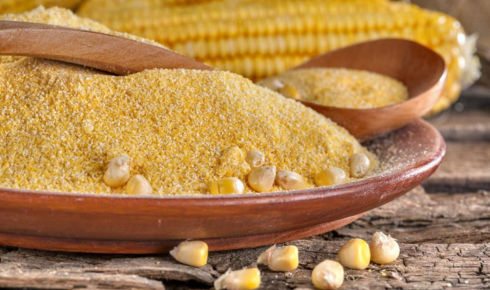In the dynamic world of agricultural trade, corn-based products have become a key component of international food commerce. Among them, Maize Grits Exporter businesses are playing an increasingly vital role in supplying one of the most versatile ingredients — maize grits — to industries across continents. Whether for food manufacturing, brewing, or animal nutrition, Grits Maize has established its place as an essential raw material that supports both economic growth and sustainable food production.
What Are Maize Grits?
Maize grits are coarsely ground particles produced by milling dried corn kernels. Unlike corn flour, which has a fine texture, maize grits retain a slightly granular structure, making them ideal for multiple food applications. Depending on the granulation size, they can be used in breakfast cereals, extruded snacks, bakery mixes, and brewing.
The versatility of maize grits is unmatched — they are a key ingredient in producing cornflakes, instant porridge, puffed snacks, and even traditional dishes like polenta. Additionally, they serve as an excellent source of carbohydrates, offering sustained energy while being naturally gluten-free and rich in essential nutrients such as B vitamins and iron.
The Importance of a Reliable Maize Grits Exporter
As demand for corn-based products continues to rise, the role of a professional Maize Grits Exporter becomes crucial. Exporting food-grade ingredients requires precision, quality assurance, and compliance with international standards. A reliable exporter ensures that every batch is processed, packaged, and shipped with care to preserve quality and freshness.
Top exporters work directly with certified manufacturers and farmers to source premium-grade maize, often from non-GMO crops. The grits are produced using advanced milling technology, followed by rigorous quality checks for purity, moisture content, and particle uniformity. Each export batch is inspected and documented according to ISO, HACCP, and FSSAI guidelines, ensuring global compliance.
In addition to production, exporters manage international logistics, customs documentation, and packaging to meet country-specific requirements. This makes them indispensable partners for food manufacturers, breweries, and distributors seeking consistent supply and competitive pricing.
The Global Demand for Grits Maize
The demand for Grits Maize has expanded significantly in recent years, driven by shifting dietary preferences and the growing global appetite for gluten-free and plant-based foods. From North America to Asia and Africa, maize grits are being used in diverse applications — from instant snacks and breakfast foods to beer brewing and animal feed.
In the food industry, maize grits are prized for their neutral flavor and texture, which easily blend with other ingredients. They provide structure, crispiness, and body to cereals, snack coatings, and bakery products. In breweries, maize grits act as a cost-effective adjunct ingredient, helping create smoother, lighter beers without compromising flavor.
Outside the food sector, maize grits are used in biofuel production, paper manufacturing, and even cosmetic formulations. Their adaptability and economic value make them one of the most traded grain-based commodities in the world.
Quality Control and Packaging Standards
Quality and freshness are top priorities in the maize grits export industry. Reputed exporters invest in air-sealed, moisture-proof packaging that protects the grits from humidity and contamination during long-distance transportation. Many exporters also provide customized packaging options, including private labeling for international buyers.
Traceability is another key aspect of modern maize grits export. By maintaining detailed records from sourcing to shipping, exporters ensure transparency and accountability — critical factors for buyers seeking trusted long-term partnerships.
Sustainability and Innovation in Production
With increasing awareness about environmental responsibility, leading exporters are adopting sustainable production and supply chain practices. This includes using energy-efficient milling technologies, sourcing from responsible farms, and minimizing waste throughout the process.
Some exporters also collaborate with agricultural cooperatives and small-scale farmers, promoting fair trade and rural development while meeting global market needs. This sustainable approach not only supports local communities but also enhances the overall quality and credibility of the final product.
Key Markets and Future Growth
The maize grits export market is seeing rapid growth in regions such as the Middle East, Europe, and Southeast Asia. Developing nations are increasingly importing maize grits to support food security, industrial manufacturing, and animal feed production. With growing consumer awareness about healthy eating, the market for maize-based products is expected to expand steadily in the coming decade.
Technological advancements in milling, logistics, and packaging have further boosted export potential. Companies that invest in innovation and sustainability are set to lead the market, building global trust and long-term profitability.
Final Thoughts
The success of the maize grits trade relies heavily on trust, quality, and reliability. Partnering with a reputable Maize Grits Exporter ensures not only consistent supply but also adherence to the highest food safety and packaging standards.
As global demand continues to rise, Grits Maize remains at the center of a thriving, sustainable industry — connecting farmers, manufacturers, and consumers through one of the world’s most versatile and nutritious grains.

